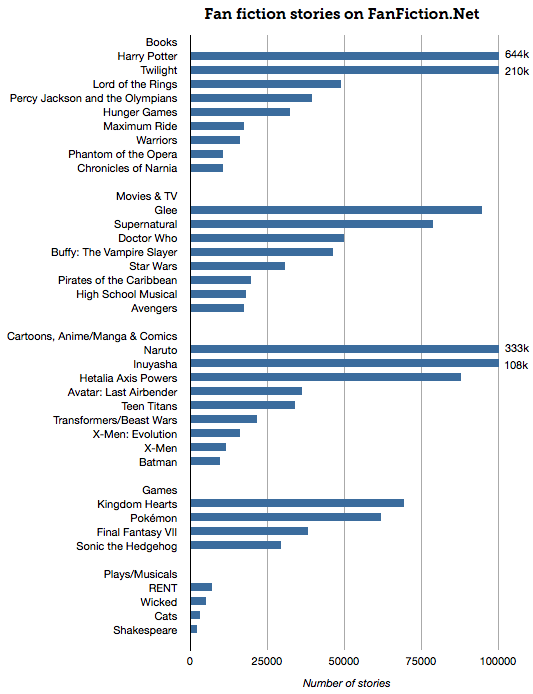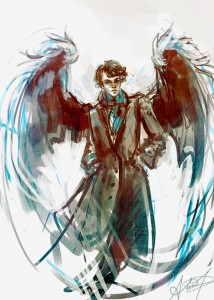Community Embraces New Word Game at Mid-Year Play Day This past Sunday, families at Takoma Park’s Seventh Annual Mid-Year Play Day had the opportunity to experience OtherWordly for the first time. Our educational language game drew curious children and parents to our table throughout the afternoon. Words in Space Several children gathered around our iPads […]
Read more Who owns art and culture? Does it belong to the artist? The legal property owner? Or the society that loves and appreciates it? Traditionally, old art is considered public, and new art is copyrighted. Anyone can write a new twist on Romeo and Juliet, or mashup the Mona Lisa with a mustache. But what if Harry Potter opened a lemonade stand? Or Luke Skywalker had a twin bother?
Who owns art and culture? Does it belong to the artist? The legal property owner? Or the society that loves and appreciates it? Traditionally, old art is considered public, and new art is copyrighted. Anyone can write a new twist on Romeo and Juliet, or mashup the Mona Lisa with a mustache. But what if Harry Potter opened a lemonade stand? Or Luke Skywalker had a twin bother?
Fan fiction (or ‘FanFic’) is a retelling our favorite stories, just as humans have always retold myths and legends. It is mostly an amateur phenomenon, featuring characters from movies, TV shows, and popular culture in new situations or adventures. FanFic authors recombine established characters, “worlds” (i.e., the setting or universe of the original stories) and histories (the original events) from current works. Authors may also add new characters, new worlds and new histories, and extend minor characters and story elements of the originals.
FanFic can be easily dismissed because there’s a lot of garbage (and a lot of porn), but there are a lot of gems too.
The world of fan fiction and fan art is huge — exploding in recent years as the internet makes it easy to for fan writers and readers to publish, share and connect.

The largest fan-fiction site, Fanfiction.net, hosts millions of works, based on books, TV shows, movies, comics and more. The site hosts over 644k stories based on Harry Potter, and over 210k based on Twilight. There’s a thriving midlist too, with around 10k stories for topics like the Phantom of the Opera and Gossip Girl; plus a long tail, with 49 items based on Treasure Island and 9 for Curious George (e.g., Curious George and the Pizza). Many other sites cater to specific fandoms, including harrypotterfanfiction and twilighted, for “Twilight” fan fiction, and many other self publishing sites.

Wingfic: Sherlock with wings, illustration by Alice X. Zhang
FanFic serves niche audiences with a never-ending appetite for new twists and scenarios. Like any booming literary subculture, FanFic has its own rules, lingo, cliques and tropes. The subgenre “denialfic” is for stories with alternate endings or gross plot changes (e.g., a character does not die), “wingfic” where all the characters have wings, and “futurefic” transplants characters into the future. A large body of writing involves crossovers, such as taking characters from Star Trek into J.R.R. Tolkien’s Middle-earth.
The writers are not motivated by money. In fact, fan fiction is almost exclusively unpaid. It’s a hobby for most writers, and their reward is readership and feedback from readers. Moreover, FanFic stays legit by being noncommercial. By not selling stories, since FanFic is inherently a form of criticism, and is generally transformative (creating different persona and events for characters), authors stay squarely under the protection of Fair Use. “Especially for noncommercial stuff, fair use offers plenty of protection [for fan works] now,” says Professor Rebecca Tushnet, professor at the Georgetown University Law Center.
But income could be nice. “There’s probably not an author/fangirl alive who hasn’t fantasized about being able to write about her favorite show. The fact that you can earn royalties doing so makes it even better,” says FanFic author Trish Milburn, who writes on The Vampire Diaries.
 Last week, Amazon threw a new twist into the equation with “Kindle Worlds,” a new self publishing site for FanFic authors. Amazon Publishing will pay royalties to both the rights holder of the original work and the authors of the new works. Authors will earn 35% of the net revenue for works of >10,000 words, and 20% for short stories of 5,000 – 10,000 words. The profit split between Amazon and the rights holder is not disclosed. Porn is not allowed. And crossovers from other Worlds are no permitted. Other KindleWorlds authors can build on prior work of any other Worlds author. Amazon Publishing will set the price for Kindle Worlds stories. Most will be priced from $0.99 through $3.99.
Last week, Amazon threw a new twist into the equation with “Kindle Worlds,” a new self publishing site for FanFic authors. Amazon Publishing will pay royalties to both the rights holder of the original work and the authors of the new works. Authors will earn 35% of the net revenue for works of >10,000 words, and 20% for short stories of 5,000 – 10,000 words. The profit split between Amazon and the rights holder is not disclosed. Porn is not allowed. And crossovers from other Worlds are no permitted. Other KindleWorlds authors can build on prior work of any other Worlds author. Amazon Publishing will set the price for Kindle Worlds stories. Most will be priced from $0.99 through $3.99.
This is a fantastic entry point for FanFic authors who want a mechanism for selling their works, and it will be interesting to see if the market is successful. FanFic readers are accustomed to free stories. Not everyone agrees that 20-35% revenue share is fair: “This is not anywhere close to what I would call a good deal,” posted John Scalzi, the president of the Science Fiction and Fantasy Writers of America.

Amazon has secured licenses for three properties: “Gossip Girl,” “Pretty Little Liars” and “The Vampire Diaries,” are owned by Warner Brothers Television Group’s Alloy Entertainment. Amazon promises more are to follow.
It would be great to see more legal ways for commerce to grow in FanFic’s world of derivative and transformative art. A way for creative people to make stories, art, apps, music, with fair licensing terms. Rights owners should support broad remixing by their fans, and open up these avenues the same way they do with merchandizing. Educational organizations can help foster this by serving as the legal middleman, creating new ways for stories and culture to be transformed.
FanFic is about culture being owned by society. Paid or not, Fanfic existed long before the internet, and be around when we live in a post-apocalyptic wasteland.
See more: Time article “The Boy Who Lived Forever” is a very fair primer on FanFic. Also: WSJ on FanFic, io9 on legality of FanFic.

